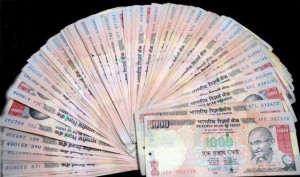It has not escaped the fact, that petrol prices are continuously decreasing and diesel prices are increasing tremendously. This had lead to confusions all around and the buying equation has been affected subsequently. People are in great dilemma as to buy a petrol variant or a diesel variant. Petrol cars are usually cheaper than the diesel ones. However, petrol cars provide almost half the mileage as a diesel car. So, if a person wishes to run more than 25,000 km per year, then he should probably go for a diesel variant. Explanation goes in the way that, a car needs to be changed within 3-4 years. Also, the mileage of the car decreases if a person wishes to run the same car for longer.
Diesel & petrol comparison on fuel factors
Diesel cars usually do not create any noise and thus in some way help in preventing environmental noise pollution. Moreover, diesel cars are more fuel efficient than petrol cars and are friendlier for long journeys. However, it might cost a little extra on the buyer’s pocket than for a petrol variant. Nevertheless, a second hand diesel car will fetch more money than a second hand petrol car. A petrol engine is cheaper than a diesel one. However, mileage provided is less and thus a person needs to re-fill it every now and then adding on the expenses. A trend in decline of the prices is seen these days, but still the total price remains much higher than diesel. Re-selling does not brings in more money so usually after a few years there is no other option left than selling the car at a very low price.
Non-fuel factors that need to be considered
Running costs or the non-fuel costs is one such category that requires deep investigation before choosing the fuel type. These costs are more important than fuel consumption and include factors like purchase cost, servicing cost, depreciation and insurance. These vary considerably between petrol and diesel variant. Diesel variants are cheaper to tax and insure than their petrol counterparts. However, servicing a diesel car will overload the pocket than a petrol car. A decade back, the scenario was different and people had a negative perception regarding diesel fuel type. The engineering advances have drastically altered this thinking. A diesel engine offers maximum torque, allowing a user to change through the gear earlier. Also, diesel is smoother than petrol these days. This especially includes the two or three cylinder units that the manufacturers are looking to boost fuel efficiency these days. When it comes to efficiency, it has been proved that good diesel is 35% efficiency while, the efficiency of petrol is limited to just 27%.
The choice of fuel type depends entirely on the user and the car type and model. If a person demands a lot of driving then diesel is the best option, or else petrol is best suited to cover not much of travelling.
About Charanpreet Singh
I am Charanpreet Singh, Content Developer by Profession with 4 years of writing experience and Writer & Photographer by passion. My writing skills and learning urge gave me the required coverage to work with Big Names in the market. Love to write, explore new stuffs, social media enthusiastic, Techno geek and last but not the least, a bulleteer...!!




















